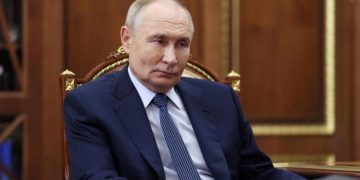SN Misra
The Nobel Prize in economics this year has come to an Indian, Professor Abhijit Banerjee, his wife Professor Esther Duflo and Professor Michael Kremer, who worked to find viable solutions to global poverty in a different way. The Nobel Committee has noted that the economists have popularised randomised control trial (RCT), which breaks large questions about policy interventions into smaller, easier-to-test studies. These economists have worked closely with the poor to conduct field studies; unlike many others who make policy prescriptions from the ivory tower or based on anecdotes. They have, in fact, transformed ‘development economics’ from its moribund obsession with aid and higher allocation to education and health.
Paul Samuelson, winner of the Nobel Prize in 1970, had said, “Economics combines the rigour of science with the poetry of humanities.” The economist trio, with their experimental rigour of RCT and humane approach to the poor, aptly fit into this description.
The challenge before the trio was to find out whether a particular intervention has been effective or not in combating poverty. Professor Banerjee has said: “We have to do much deeper work to understand the lives of the less fortunate in our society in the face of all the disruption they face.” His seminal book ‘Poor Economics’ co-authored by Professor Duflo is a counter point to the Leftist ideology of Professor Jeffrey Sachs, who believed that ‘aid’ to developing countries will be the antidote to poverty.
The trio do not carry the ideological baggage of either the left or the right. By scrupulously conducting evidence-based study and moving with the poor, they have trodden the path of Gandhi, who had said: “[When in doubt] the still small voice [my conscience tells me], move neither to your left, nor right, keep to the straight and narrow.”
The other big finding of the economist trio is that development does not cost much. A bottle of chlorine, which cost 18 cents (about Rs3 as on October 16), can reduce diarrhoea by 48 per cent. Yet only 10 per cent of poor people actually bleach to treat water
Professor Banerjee has found using RCT how by targeting a specific intervention such as providing mosquito nets to the poor, or giving text books and deworming tablets to children, the life of recipients can be changed dramatically. Five million Indian children have benefited from remedial teaching in their schools. Duflo and Banerjee have also studied how child immunisation in Indian villages have improved their lives permanently. By providing a bag of lentils and a set of metal plates, they found, people were six times more likely to get their child immunised than when they were not offered these incentives. They also found out how providing free text books does not help quality of teaching without tailored teaching and remedial help. Kremer had the same experience in Kenya where he spent time with students in secondary schools. The Nobel laureates, have brought out that doles do not help unless these interventions are scientifically studied and empathetically implemented.
The other big finding of the economist trio is that development does not cost much. A bottle of chlorine, which cost 18 cents (about Rs3 as on October 16), can reduce diarrhoea by 48 per cent. Yet only 10 per cent of poor people actually bleach to treat water. Similarly, there is no demand for bed nets because the poor cannot afford them. But to encourage the poor to use bed nets or use chlorine in water, they need to be incentivised and monitored. Banerjee succinctly observes that “big changes are not the result of big changes, but small changes such as mosquito nets, bleaching powder and textbooks, which can be big life-changers for the poor”.
In a stimulating articles ‘Growing Cleavages in India’ (March 2019), which analysed the changing structure of electorates in India from 1962-2014, Banerjee and Professor Thomas Piketty, by using RCT, bring out how religious division and caste-based cleavages determine voters’ choice rather than issues such as education, income and occupation. The voter seems to be less driven by economic interests, than sectarian conflict and cultural priority. Identity and religious conflict, rather tangible material benefits and class-based redistribution seem to be afflicting India. Both Professor Piketty and Professor Banerjee are anguished that the fight over matters such as cow slaughter, Ram Mandir and Triple Talaq have become more salient than “potentially very important political dimensions such as better schools, health facilities and land redistribution”. They aver that one key challenge to development policy instrument is finding ways to address issues such as “effective access for lower and middle classes to higher quality of public services irrespective of caste or religious identity, reduction of income and health inequality, and effectiveness of progressive taxation”.
As against the Millennium Development Goal of abolishing extreme poverty by 2015 globally, the rate of poverty came down to 10 per cent by 2015 according to a World Bank report. But in India, according to an estimate made by Professor Suresh Tendulkar, 23.6 per cent (276 million) people still languish in extreme poverty. The allocation to education and health is a measly 4.5 per cent of the GDP as against Professor Sen’s suggestion of 9 per cent (6 per cent for education and 3 per cent for health). The Draft Education Policy 2019 and the Draft Health Policy 2018 have corroborated this allocation dream, which is yet to be put in place. The Nobel winners have gone beyond the economics of GDP allocation, to evidence-based interventions such as providing basic necessities to the poor and their children with proper inducements.
In their forthcoming book ‘Good Economics for Hard Times: Better Answers to Our Biggest Problems’, professors Banerjee and Duflo state that “the recent slowdown in productivity growth coincides with the explosion of social media”. “It is entirely conceivable that what gets counted as GDP at what should be counted in well-being widened at the same time,” they say. India’s policymakers can profit immensely from this concern and from the evidence-based findings that the three Nobel laureates have brought to the public space to ponder over and implement.
The writer teaches economics at KIIT School of Management.






































